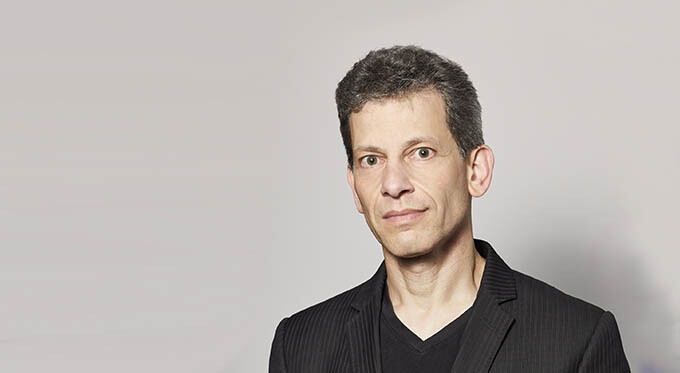
David Rowan is one of the UK’s most influential artificial intelligence speakers, renowned for decoding the real-world impact of emerging technologies and guiding organisations through profound digital change.
As the founding Editor-in-Chief of WIRED UK and a trusted advisor to tech pioneers and global enterprises alike, David brings unrivalled insight into how innovation is reshaping industries, leadership, and society at large.
A leading voice among future of work speakers and technology speakers, David has travelled to more than 30 countries studying the culture of innovation firsthand—from Silicon Valley to Shenzhen.
In this exclusive interview, he explores how AI is transforming business models, why authentic innovation requires a cultural mindset shift, and what leaders must do to thrive in a world where disruption is constant and opportunity is exponential.
Q: AI has become the dominant force shaping business strategy—how should leaders prioritise emerging technologies in this new era of disruption?
David Rowan: “So, we got very excited about this new thing called the mobile Internet, and that’s a pretty small thing. We got excited about the digital transformation, and that’s a pretty small thing, because the big thing that’s going to change the way we all work—business models—is clearly going to be AI. And it’s already starting.
“You’ve probably noticed your own behaviour changing, and I have been working in the Internet for 30 years. I’ve never seen such a greenfield of both opportunity, but also potential disruption, as I do now with the accelerated spread of AI.
“We can talk about quantum computing, we can talk about metaverses, but there’s really only one topic on the agenda of business leaders.”
Q: With generative AI redefining operational models across sectors, how can companies effectively integrate tools like ChatGPT into core decision-making?
David Rowan: “The simple way of thinking about generative AI is: anything that doesn’t currently have reasoning power is going to have a brain. And in a couple of years, we won’t be talking about AI. It’s going to be like electricity. It’s just going to be there, powering all sorts of data gathering, information processing, decision-making.
“And it’s going to affect us as individuals. We’re going to be wearing sensors that tell us our blood sugar level needs altering, that we’re not getting enough sleep. But it’s in particular going to affect every aspect of a business—from customer discovery to the way we communicate, to the way we automate processes with agents, such as sales outreach and invoicing.
“But it’s already changing how we create commercials, marketing messages, the way we discover new materials. We’re using AI to generate new carbon-negative materials, new pharmaceuticals. So, I see us as at the beginning of a massive transformation where these external brains find new answers.”
Q: In your global research on innovation, what distinguishes genuine, scalable innovation from tokenistic efforts—and how can leaders foster the former?
David Rowan: “Now, at a time of massive transition, the temptation is to have a Head of Innovation or even a Department of Innovation to try and build the future of your business. I wrote a book, went to 20 countries trying to understand real innovation, and it’s not having a Head of Innovation.
“In fact, if you have “Innovation” on your business card, you’re probably not the person innovating, because it’s not a tick-box exercise. It comes down to a whole cultural shift in a team, where you’re prepared to play, to explore new technologies, to see where they might fit into the future—even if, quarter by quarter, you’ve been doing very well using the tools of yesterday.
“And it takes a new way of thinking by leaders to decentralise decision-making, because everybody in your team is potentially your Head of Innovation. They’re seeing how customers’ behaviour is changing. They are, in their personal life, using these new tools.
“And so, we need to bring together people who think in different ways. Cognitive diversity is key. We need to get people experimenting with no short-term requirement for a financial return.
“And we also need to protect the people doing things in new ways, because being the pirate in the organisation—even though it’s deeply unpopular in the moment—is probably the way to build tomorrow’s organisation.”
Q: Having invested in over 180 startups, what consistent characteristics do the most resilient and high-impact founders share—and what can legacy businesses learn from them?
David Rowan: “So, I work every day with early-stage companies using deep technology and science to try and build something significant. I’ve invested—it’s a painful process—in about 180 companies. So I’ve learned, by things that haven’t worked out, what works and what doesn’t work.
“And, you know, my lessons are: it’s not the ambition of the founders, or the power of the story they’re telling, or the size of the market they’re going after. What determines whether a small team has the capability of building something transformative often comes down to that inherent chip on the shoulder that’s motivating them to do something that they’re absolutely passionate about—even against reason.
“Even if everybody is saying it’s not going to work, you need resilience, because you’re going to get “no” most of the time. And you need to be solving a real problem with articulated client demand.
“So there’s no point trying to build a new kind of aeroplane made out of umbrellas if, however smart you think it is, there’s no clear demand. But if you’re trying to build an aeroplane that uses a new kind of carbon-neutral fuel, and there’s a clear demand from the aviation industry to show it’s decarbonising—well, if you can build it, you know someone’s going to come to pay for it.”
Q: When faced with crisis or failure, what mindset and structural shifts are critical for businesses to pivot towards long-term growth and transformation?
David Rowan: “Sometimes, when things go wrong—when there’s a crisis—it can actually be the spur of a new beginning.
“So, for my book, I wrote about a massive Indian textile company called Wellspun, which got into a lot of trouble because its organic Egyptian cotton turned out not to be, and the share price collapsed. Customers started cancelling contracts. Something had gone wrong in the supply chain. So, what they claimed was organic Egyptian cotton was actually adulterated, and the company had only one hope.
“To survive, it had to fess up. It had to be transparent. But it decided that the crisis was an opportunity to rethink the whole supply chain for cotton—from the field to the sheet, the towel.
“And so they started a new process. They invested quite heavily in becoming the most transparent supply chain cotton company in the world, with tracking and QR codes and scanning at every stage, from baling up the cotton to transforming it into the thread.
“Turned out that was transformative to the business opportunity, and other companies started saying, “Excuse me, we have the same problem—can we pay to use your digital tracking service?”
“If there hadn’t been that crisis, decisions would not have been made quickly to do something radically different for the business, which turns out to be a big growth opportunity.”





